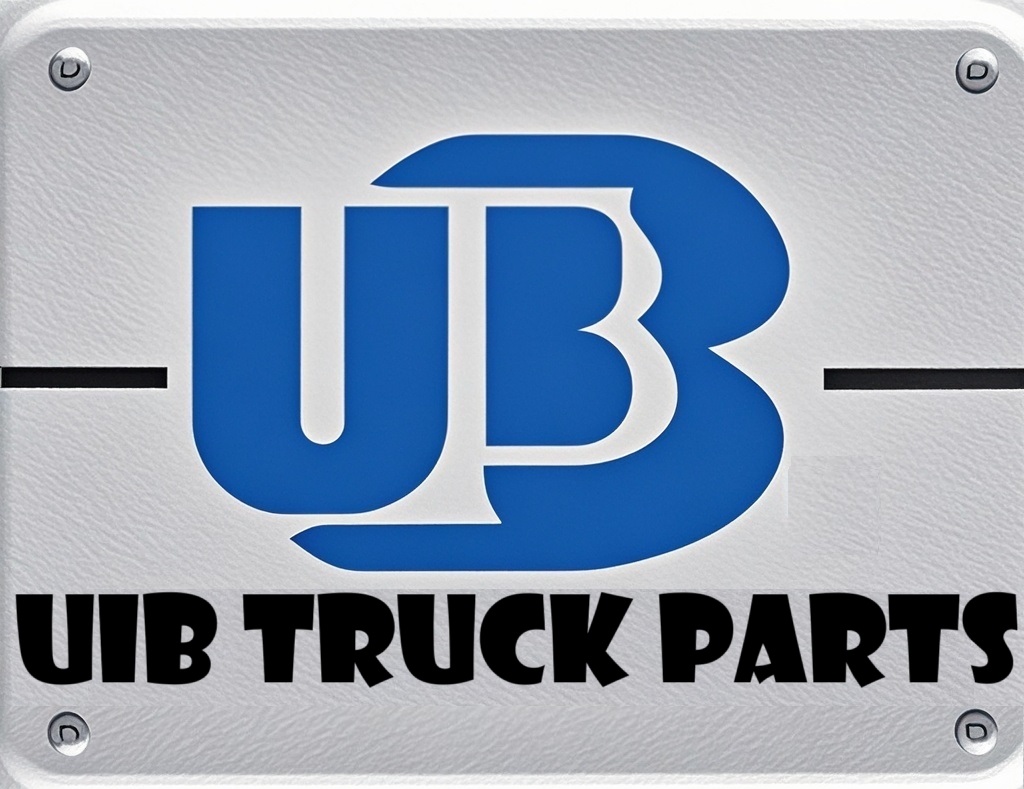About Us
Getting to Know Truck Water Pumps: The "Circulation Core" Ensuring Engine Operation
Views : 182
Update time : 2025-07-17 10:17:42
Among truck components, the water pump is the "heart" of the engine cooling system, and its performance directly affects the normal operation and service life of the engine. Understanding the basic functions, structure and importance of the water pump is an important step in mastering vehicle maintenance knowledge.
The Core Role of Truck Water Pumps
A truck engine generates a lot of heat during operation. If the heat is not dissipated in time, key components may be damaged. The core task of the water pump is to drive the coolant to circulate in the cooling system, take the heat from the engine to the radiator for cooling, and then send it back, ensuring that the engine operates at a suitable temperature of 80-90℃. Without a water pump, the engine will soon break down due to overheating.
Main Structure of Truck Water Pumps
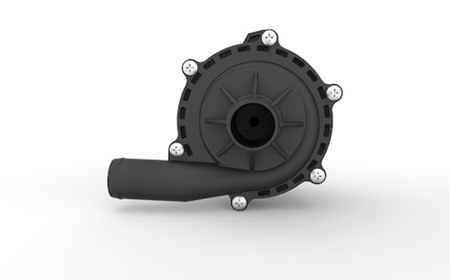
The structure of a truck water pump is not complicated, and its key components include:
- Impeller: The core rotating part, made of cast iron or plastic. It generates centrifugal force when rotating to promote the circulation of coolant.
- Pump casing: It wraps the impeller, forms a water flow channel, guides the flow direction of the coolant and bears pressure.
- Bearing: It supports the rotation of the water pump shaft, reduces friction, and needs regular lubrication.
- Shaft seal: Installed at the connection between the shaft and the pump casing, it prevents coolant leakage and the entry of impurities, and is a wearing part.
- Pulley / coupling: It drives the water pump to rotate through the crankshaft belt or gear, and different trucks have different transmission modes.
Common Types of Truck Water Pumps
- Mechanically driven water pumps: Driven by the engine crankshaft through belts, gears or chains, their speed is proportional to that of the engine. They have a simple structure, high reliability and low maintenance cost, and are currently a common type in trucks.
- Electric water pumps: Driven by an electric motor, they are not affected by the engine speed. They can adjust the speed through an electronic control system, with better energy-saving performance. However, they have higher requirements for motors and control systems, and are increasingly used in high-end or new energy trucks.
Daily Maintenance and Fault Diagnosis
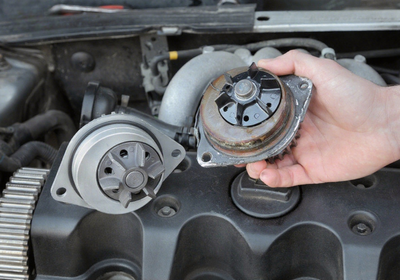
Water pump failures affect engine heat dissipation, so daily inspection and maintenance are very important:
- Check for water leakage: Regularly observe whether there are traces of coolant leakage on the water pump casing and shaft seal. Water leakage is mostly caused by worn shaft seals or cracks in the casing.
- Listen for abnormal noises: When the engine is running, if there are "buzzing" or "clunking" sounds near the water pump, it may be due to bearing wear, loose impellers or foreign objects jamming, so timely inspection is required.
- Inspect transmission parts: For mechanically driven water pumps, check the tightness and wear of the belt; for gear-driven ones, check whether the gear meshing is normal.
- Replace coolant regularly: Coolant has anti-corrosion and anti-scaling effects. If it is not replaced for a long time, it will cause rusting of the water pump and wear of the impeller. It should be replaced regularly according to the vehicle manual, and mixing of different types of coolants should be avoided.
In short, the truck water pump is the "power source" of the engine cooling system, and its stable performance is related to the operating efficiency and safety of the truck. Understanding its working principle and maintenance points can help vehicle owners detect problems in time, reduce the risk of failures, and ensure the reliable operation of trucks during long-distance transportation.
相关新闻
 Revealing Three Little-Known Facts About Trucks
Revealing Three Little-Known Facts About Trucks
Aug 06,2025
This article presents three little-known facts about trucks, including that the cab can be flipped for engine maintenance, the rearview mirrors are equipped with defrosting and deicing functions, and the small tank next to the fuel tank is an urea tank which is crucial for environmental protection. It helps readers understand the secrets behind truck designs and functions.
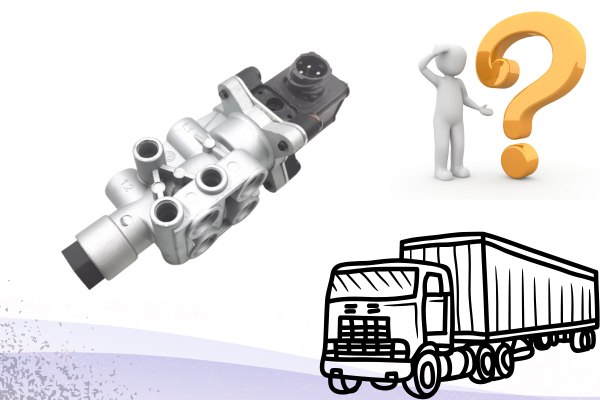 Control Valve: The "Key Steward" in Truck Engines
Control Valve: The "Key Steward" in Truck Engines
Aug 05,2025
This article introduces the role of the control valve in the diesel pump, including controlling fuel quantity and stabilizing pressure; lists symptoms when it malfunctions, such as weakened power and increased fuel consumption; provides maintenance methods, and illustrates through cases that paying attention to the control valve can avoid unnecessary expenses.
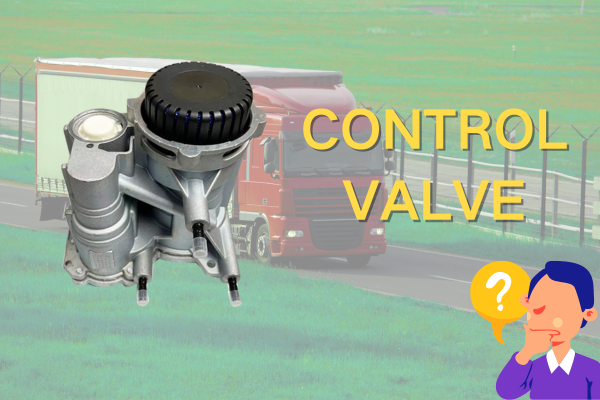 Control Valve: The "Invisible Commander" of Truck Power
Control Valve: The "Invisible Commander" of Truck Power
Aug 05,2025
The control valve is an indispensable core regulating component in the truck power system. Although it hides inside the machinery and keeps a low profile, it relies on its powerful functions to precisely command the rhythm of power output, comprehensively ensure driving safety, and intelligently adapt to various working conditions. With sophisticated design techniques and durable material selection, it can achieve a perfect balance between power and efficiency in various complex scenarios, and can be called the invisible cornerstone supporting the efficient and stable operation of trucks.
 Truck Snow Chains: Safety Guarantee on Icy and Snowy Roads
Truck Snow Chains: Safety Guarantee on Icy and Snowy Roads
Jul 28,2025
This article elaborates on truck snow chains, including their important role on icy and snowy roads, applicable scenarios, selection methods, installation steps, and usage precautions. It aims to provide references for truck drivers to drive safely in icy and snowy weather and reduce accidents caused by slippery roads.
